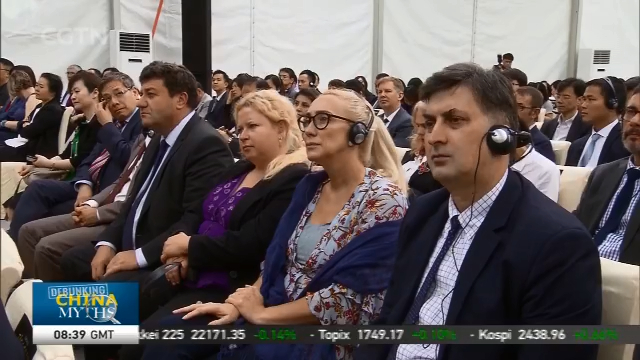
19:17, 01-Jun-2018
Opening-Up Policies: Enlarging business of foreign institutions
03:15

Several foreign finance institutions are now applying to set up joint-venture companies in China -- consumer finance companies, securities firms, and credit businesses. Both central and local governments are facilitating the applications, permitted now by a policy decision to further open China's financial sector. Our reporter Chen Tong has more.
At the end of April, French-owned Oney Bank signed an investment contract with Shanghai's Brightfood Group to set up a consumer finance company here, in what would be China's first consumer finance investment by a European firm. What's behind their plans is China's growing consumption sector, which is driving up the demand for consumer finance loans. Estimates from Qianzhan.com say consumer loans will account for 25 percent of all loans nationwide by 2020.
YU BAICHENG, DIRECTOR WANGDAIZHIJIA RESEARCH INSTITUTE "The purchasing power of China's younger generation is increasing, while the focus of China's economic development is shifting to consumption. So consumer finance services like consumer loans will also develop rapidly. Foreign companies have extensive experience with consumer finance in their own countries. These deals with domestic companies, which have a large customer base in China, will expand the market and professionalize it."
Consumer finance is just one area that foreign institutions are looking into. Another area of interest to them is securities firms. Japan's largest securities trader Nomura, for example, applied a month ago to establish a joint-venture brokerage firm in China. Following China's new rules allowing foreign institutions to hold a majority stake in local finance firms, Nomura will hold 51 percent of the new company.
CAI YIQING, CHIEF REPRESENTATIVE NOMURA SHANGHAI Cai Yiqing, Chief Representative Nomura Shanghai "During the years we have been in China, the largest bottleneck to our business development has been policy issues. One was the shareholding ratio allowed to foreign institutions, and the other was the range of businesses we were allowed to do. Every foreign company has its own specialty, and we very much hope we can expand our specialties in China, including domestic and offshore businesses. So this liberalization is really crucial to us."
CHEN TONG SHANGHAI Chen Tong Shanghai "The central government's new policies are just one of the important changes for the foreign finance firms. Here in Shanghai, local officials are also thinking about ways to improve the business environment for them."
CHAO KEJIAN, DEPUTY EXECUTIVE SHANGHAI HUANGPU DISTRICT "The overall policy has been decided by the central government and of course, we are following that. But at the district level, our focus is on the microenvironment, including providing apartments for high-end professionals and good workplaces for the companies. We want to provide a good business environment to attract professionals to live and work here, so as to support the companies."
Huangpu district has set up special online and offline services to help foreign firms. For foreign professionals, these services include easier access to insurance, apartment rentals and medical treatment. These follow the Shanghai government's release of 30 special guidelines in March aiming to improve the city's business environment.

SITEMAP
Copyright © 2018 CGTN. Beijing ICP prepared NO.16065310-3
Copyright © 2018 CGTN. Beijing ICP prepared NO.16065310-3